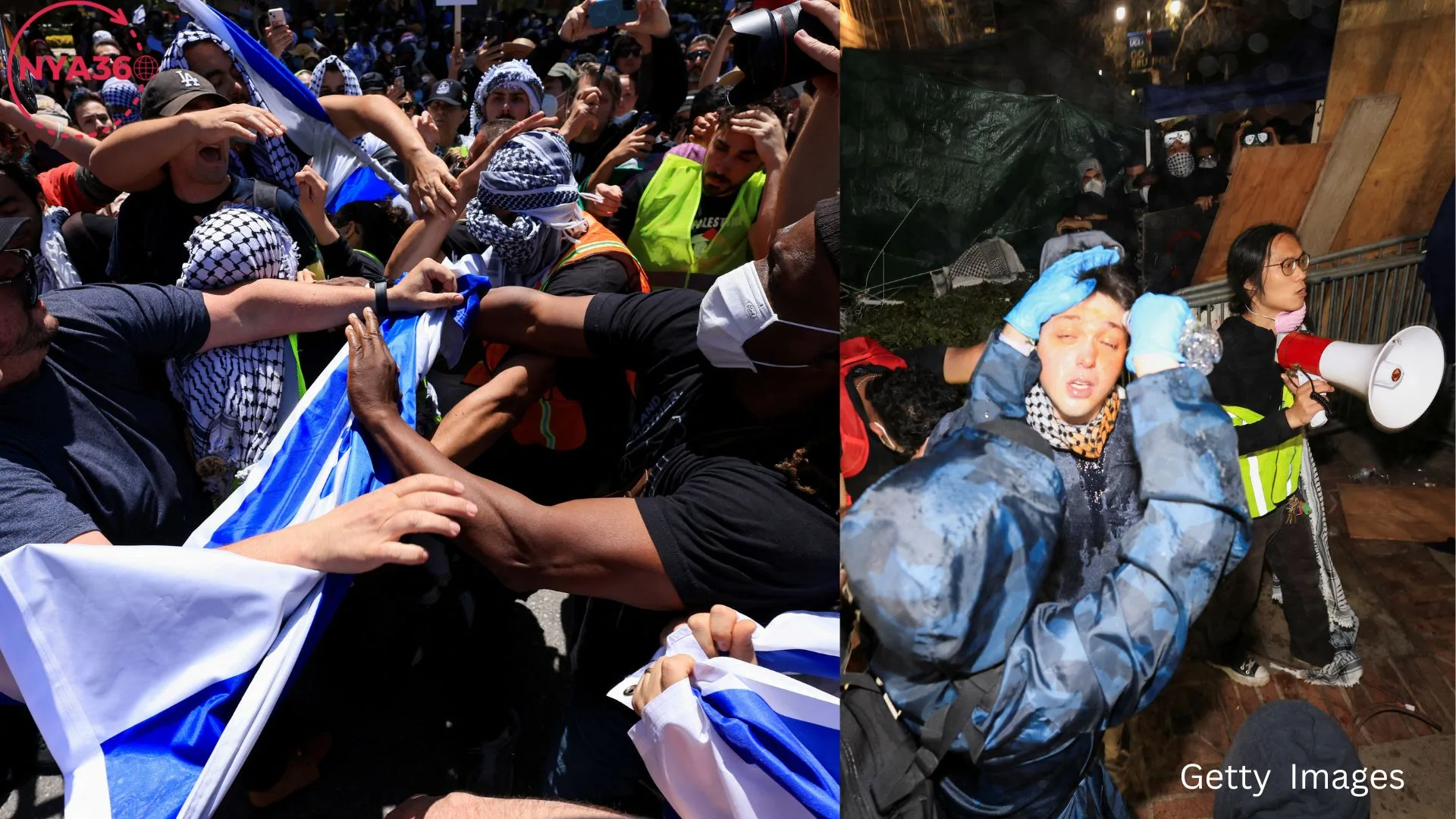A perturbing development has transpired at the University of California, Los Angeles (UCLA), where pro-Israel and pro-Palestine demonstrators have engaged in violent confrontations, resulting in casualties and disorder throughout the campus. Both parties involved exhibited belligerent conduct and heightened tensions as the conflict escalated swiftly.
Protesters in support of Israel allegedly incited the violence by blasting loud music and activating air raid alarms through loudspeakers; this provocative action further escalated the tensions among the assembled crowds. The ensuing reports of bear mace and pyrotechnics being discharged into the Palestinian encampment exacerbated the already hostile and perilous environment.
Conversely, pro-Palestine faction members reacted by hurling objects at their opponents, including metal fencing, thereby exacerbating the tumultuous circumstances. Pro-Israel forces breached barricades at the Palestinian encampment, precipitating disorderly situations and an increase in hostilities on the UCLA campus.
As the hostilities escalated, accounts surfaced detailing significant injuries sustained by pro-Israel and pro-Palestine demonstrators alike, with individuals on both factions suffering physical harm as a result of the confrontations. As the situation continues to develop, the precise magnitude of the injuries and the overall count of casualties remains uncertain.

The intense confrontations that occurred at UCLA serve to emphasize the longstanding hatred and division that has surrounded the Israeli-Palestinian conflict, a subject that has riled up campuses and the general public alike. The heightened intensity of hostilities and the proliferation of physical altercations underscore the critical nature of the situation and demand for constructive discourse, mutual comprehension, and nonviolent resolution.
Presently, efforts are being made by university officials and law enforcement to contain the situation and restore campus tranquility. Nevertheless, effectively handling these highly charged disputes necessitates a collaborative effort from all parties concerned to avert additional escalation and guarantee the well-being of all participants.
The conflicts at UCLA give rise to more extensive inquiries concerning the boundaries of freedom of expression, the legitimacy of protest, and the obligations of both individuals and collectives to convey their opinions in a nonviolent and respectful fashion. Although intense divergences of opinion are an inherent aspect of democratic dialogue, the use of force and hostility merely undermines the foundational values of civility and reciprocal regard.
🚨#BREAKING: Violent clashes are breaking out between pro-Israel and Pro-Palestine protesters at UCLA, with fireworks long with multiple items being thrown with injuries
Currently, violent clashes and multiple fights are breaking out between… pic.twitter.com/pYnRrUFg9R
— R A W S A L E R T S (@rawsalerts) May 1, 2024
There have been demands for increased dialogue, education, and understanding in the aftermath of the violent clashes to address the underlying issues that fuel the conflict between pro-Israel and pro-Palestine groups. Efforts directed toward the advancement of tolerance, respect, and harmonious cohabitation are critical for bridging divisions and cultivating an environment characterized by mutual appreciation and comprehension.
Given the ongoing and uncertain circumstances at UCLA, it is critical that all individuals concerned exercise restraint, place safety as their foremost concern, and collaborate on the reduction of tensions. We can only hope to attain enduring resolutions to the intricate challenges that confront the Israeli-Palestinian conflict and establish a future founded on peace, justice, and reconciliation using nonviolent discourse and constructive engagement.
Follow us on social media: Instagram, Threads & Twitter X @nya360_ YouTube & Facebook @nya360.





